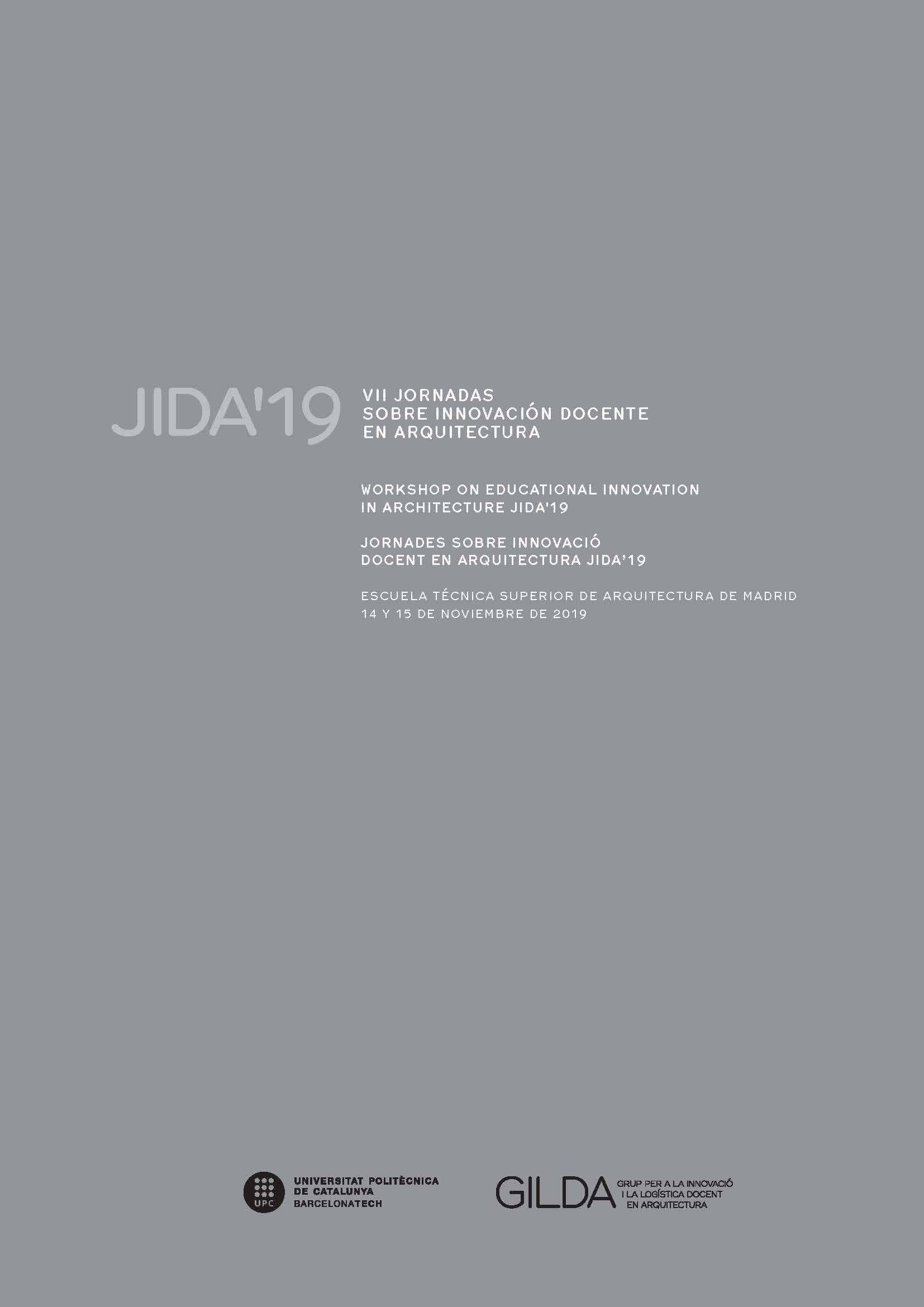Taller de Barrio. Pedagogical innovation through threefold alliances
DOI:
https://doi.org/10.5821/jida.2019.8407Abstract
Architectural teaching is today characterized by the sheer disconnection between the academic context and that of the profession. As an answer, a group of teachers from the Universidad del Bío-Bío School of Archiitecture created Taller de Barrio, a pedagogical innovation initiative whose main objective is to give back to architectural education its practical and social sense. This is achieved by means of the implementation of a multidirectional kind of academic outreach that. Inspired by the idea of threefold alliances, it aims at connecting academic needs with those of civil society and competent institutions. As a result, academy is able to enter into an horizontal dialogue with the public administration and civil society. The used methodology connects with the vertical studio tradition. We offer a brief historical recapitulation of our school and then proceed to introduce the notion of Threefold Alliance in the context of Taller de Barrio.References
AUCA 16. (1969). Revista Arquitectura, Urbanismo, Construcción y Arte.
BISBAL, I. et al. (2018). “El microproyecto como vÃnculo con el medio e integración de saberes en arquitecturaâ€. Daniel GarcÃa-Escudero, Berta Bardà i Milà (Eds.). En: VI Jornadas Sobre Innovación Docente en Arquitectura. Zaragoza. Disponible en: <http://dx.doi.org/10.5821/jida.2018.5514> [Consulta: 15 de septiembre de 2019]
BOHM, D. (2004). On Dialogue. New York: Routledge.
DUHALDE, M. (2008). "PedagogÃa crÃtica y formación docente". En Godotti, M. et al. (com): Paulo Freire. Contribuciones para la pedagogÃa. Buenos aires: CLACSO. Disponible en <http://bibliotecavirtual.clacso.org.ar/ar/libros/campus/freire/20Duhal.pdf>
GOYCOOLEA, R. (2017). Escuela de Arquitectura UBB. Desde la Memoria. Concepción: Ediciones Universidad del BÃo-BÃo.
ESCUELA DE ARQUITECTURA UNIVERSIDAD DEL BÃO-BÃO. (1987). Definición de las metas, objetivos y perfil de los módulos básicos, medio y avanzado del programa de Arquitectura. Documento oficial de la Escuela de Arquitecturas UBB. Concepción, Chile.
ESCUELA DE ARQUITECTURA UNIVERSIDAD DEL BÃO-BÃO. (1987). Perfil del arquitecto de la Universidad del BÃo-BÃo y el plan de estudio. Concepción, Chile.
FUKUYAMA, F. (1992). El Fin de la Historia y el Ultimo Hombre. Chile: Planeta.
GARRETÓN, J. (1984). El Cuerpo Social. Santiago: Oficina de Planificación Nacional (ODEPLAN).
GUTTENHÖFER, P. (2011). Salvando la Infancia. <https://sozial.goetheanum.org/fileadmin/sozialwissenschaft/2012/socialforum/SalvandoInfancia.pdf> [Consulta: 15 de septiembre de 2019]
LUHMANN, N. (2000). Art as a Social System. California: Stanford University Press.
MABARDI, J. y LAGOS, R. (eds.). (2012). MaestrÃa del Proyecto, Concepción: Ediciones Universidad del BÃo-BÃo.
VARELA, F. (2014). Autopoiesis. ValparaÃso: Editorial UV de la Universidad de ValparaÃso.
PARKER, P. y ZAJONC, A. (2010). San Francisco, San Francisco: Jossey-Bass.
STEINER, R. (1989). Futuro Social. Madrid: Editorial Rudolf Steiner.
STEINER, R. (2016). El Nuevo Orden Social. Madrid: Editorial Rudolf Steiner.
STEINER, R. (1996). The Child's Changing Consciousness as the basis of Pedagogical Practice. New York: Anthroposophic Press.
UNIVERSIDAD DEL BIO-BIO. Perfil de egreso online. <http://arquitectura.ubiobio.cl/plan-de-estudios/> [Consulta: 12 de septiembre de 2019]
UNIVERSIDAD DEL BIO-BIO. Vinculación con el medio. <http://vcm.ubiobio.cl> [Consulta: 12 de septiembre de 2019]



















